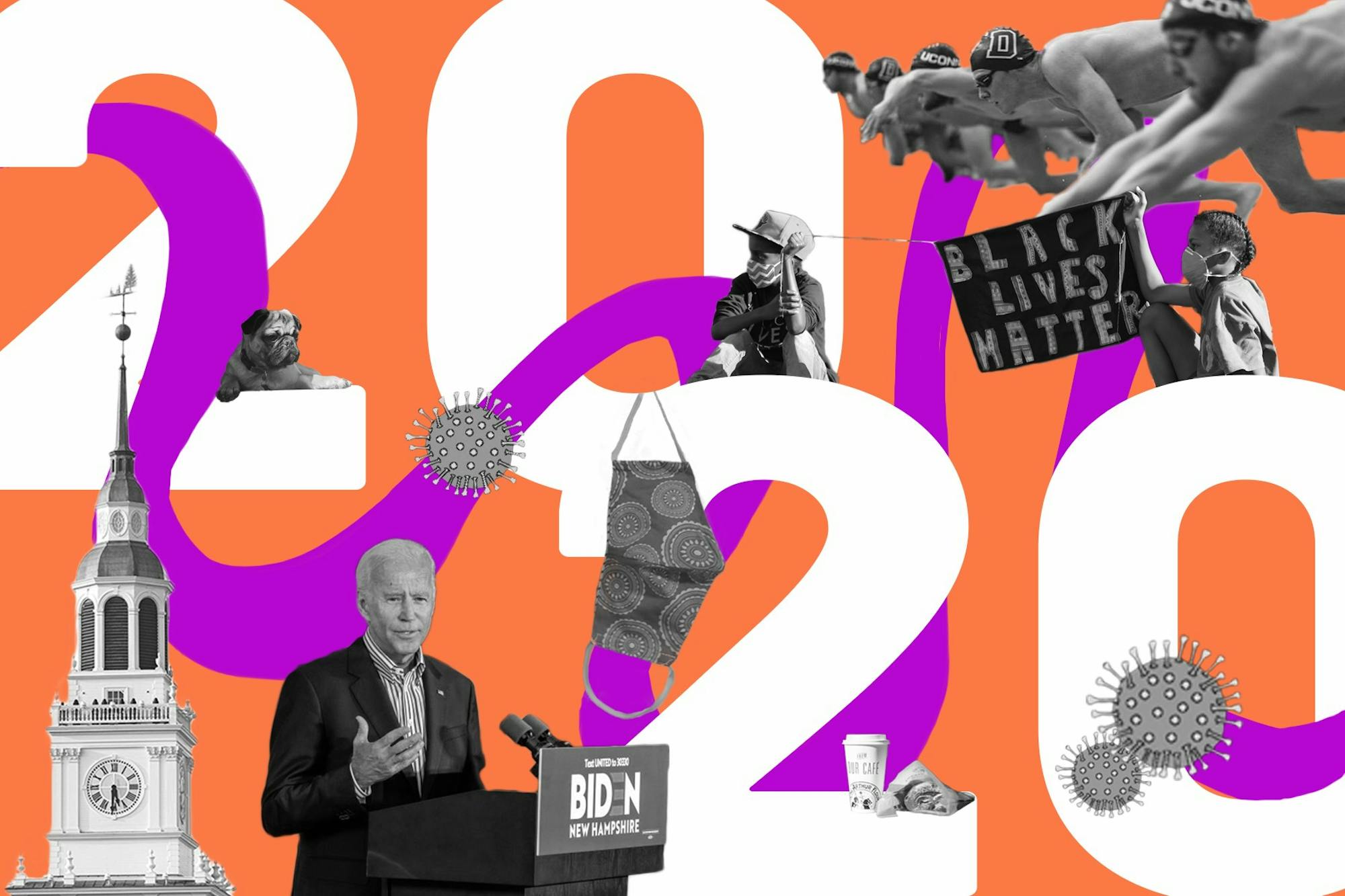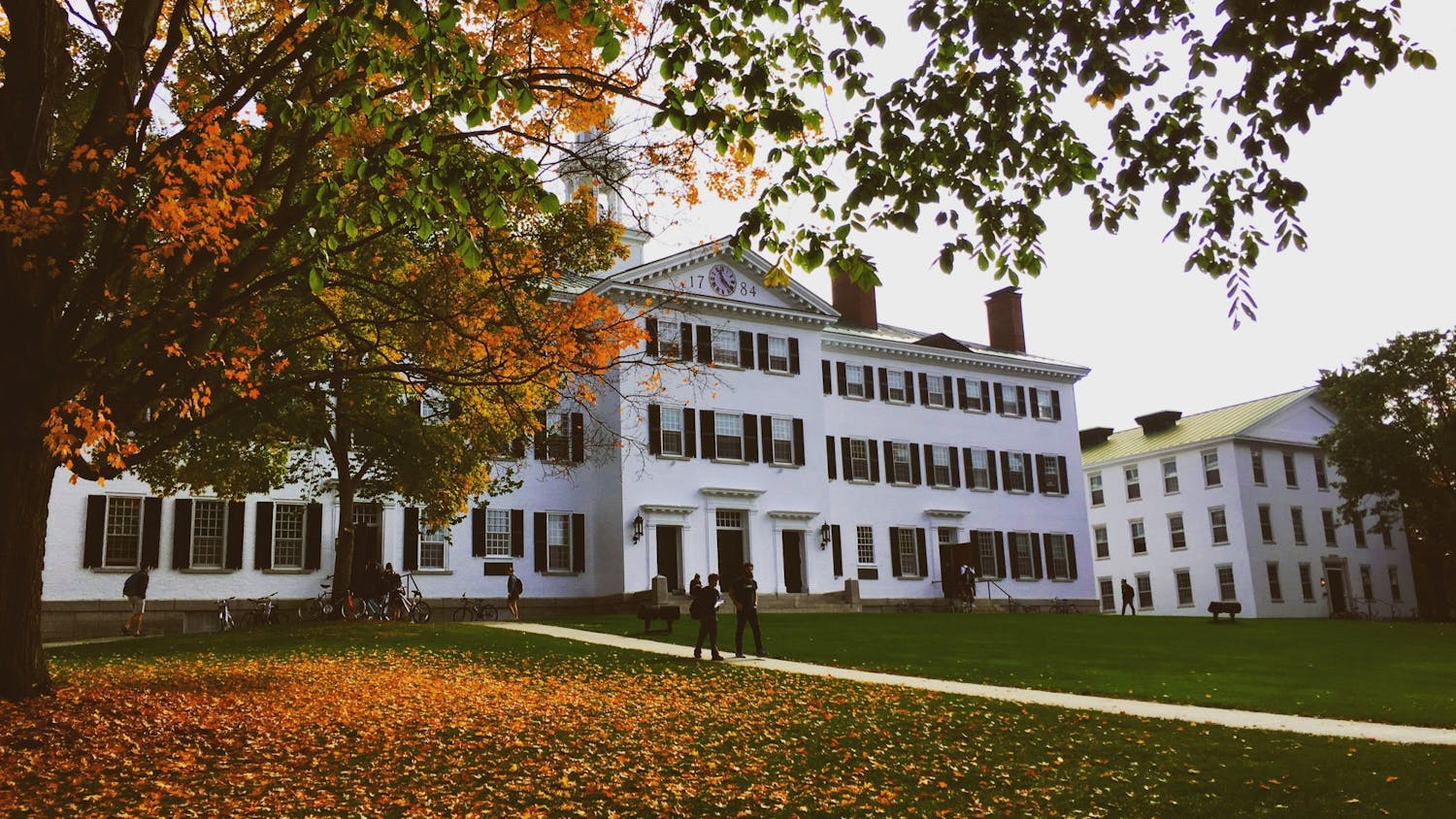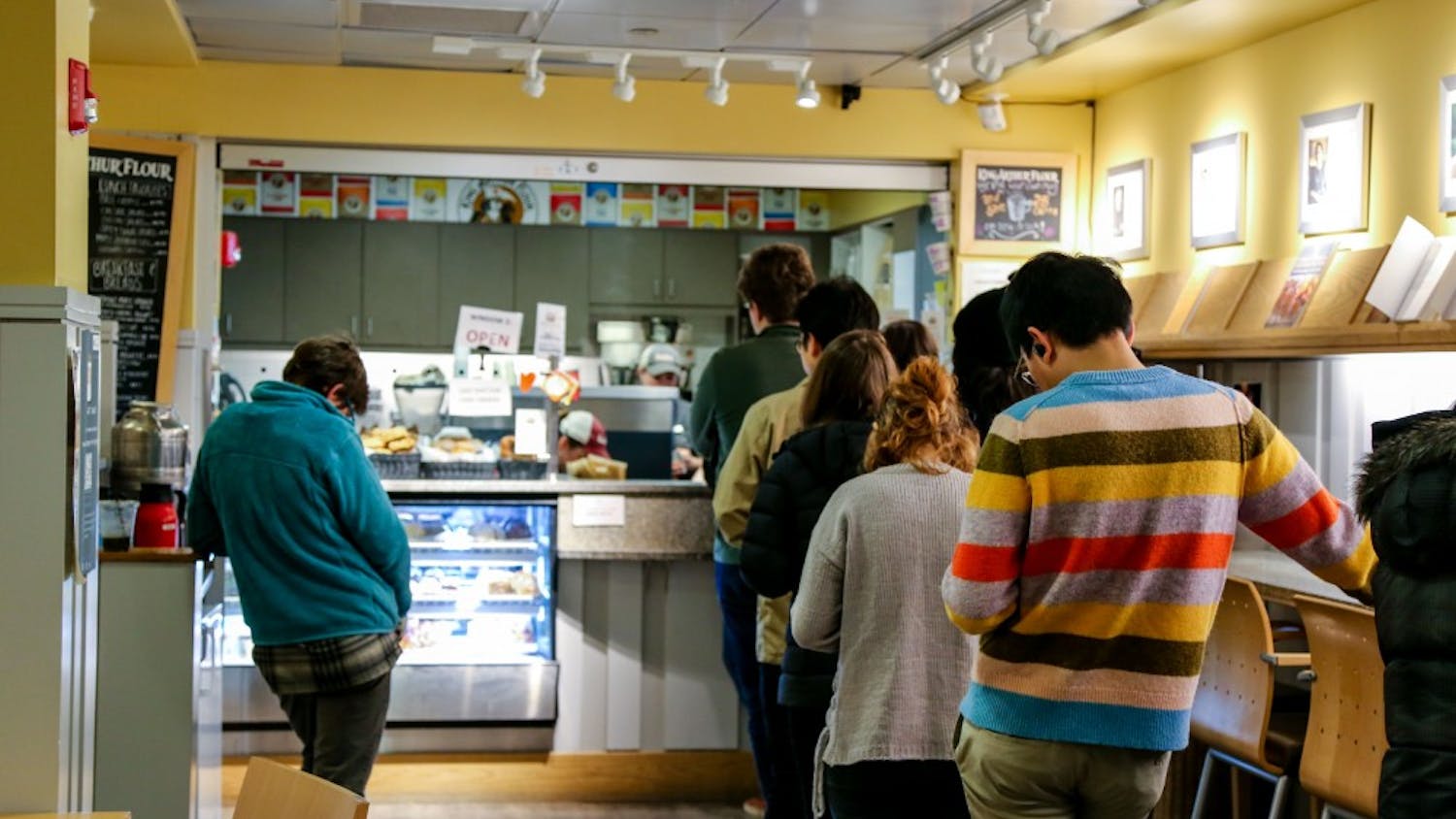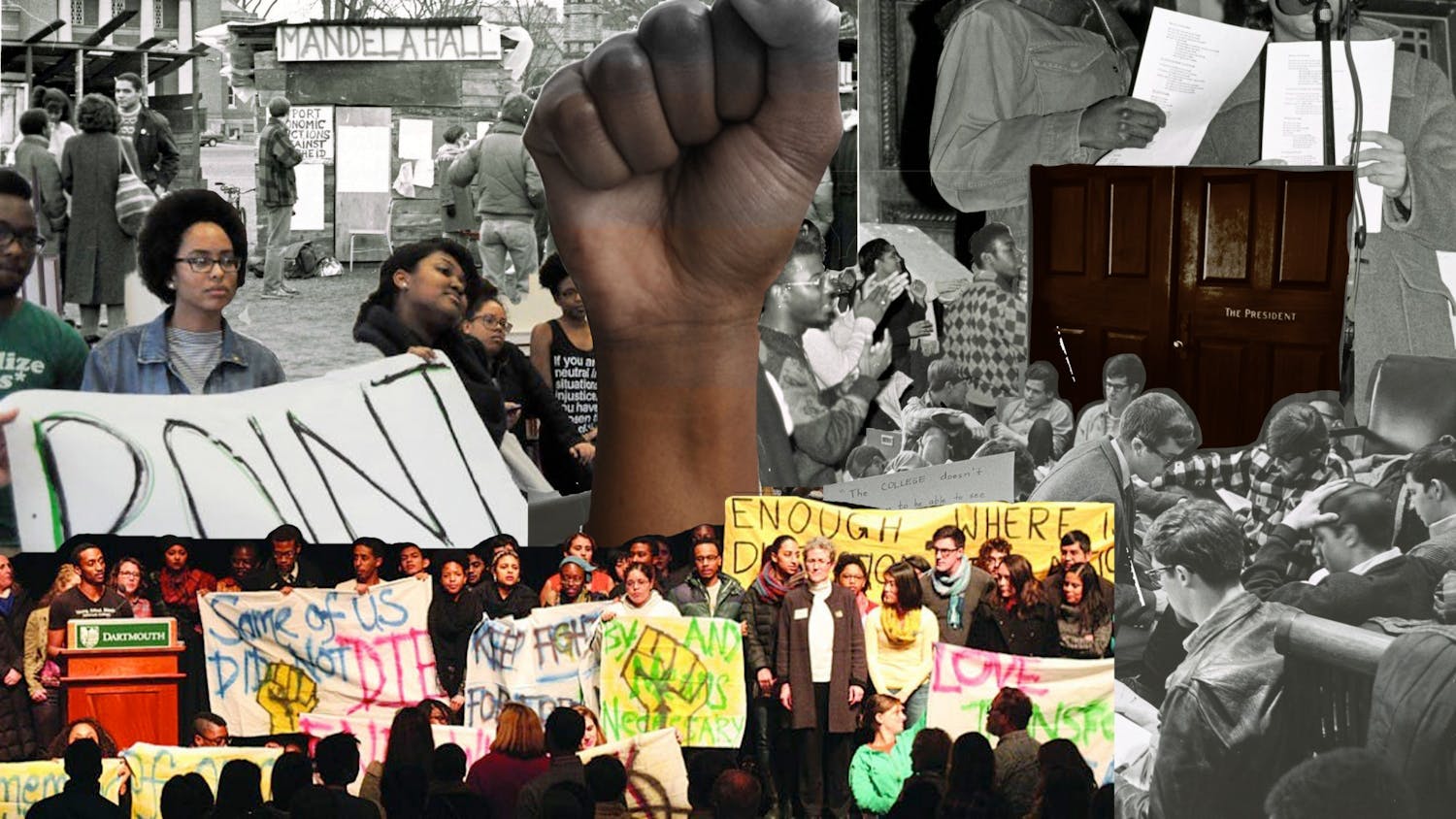Oh, 2020. For a year that took so much from us, it certainly wasn’t lacking in news. From the advent of remote learning to a nationwide reckoning with racial injustice, the College grappled with new challenges and longstanding issues alike. Here’s a look back at the headlines that shaped this historic and unconventional year.
Jan. 15: College faces tuberculosis scare
Months before students and faculty were testing each week for COVID-19, Dartmouth was testing community members to combat the spread of another highly contagious malady: tuberculosis. After a Dartmouth community member was diagnosed with the disease, the College tracked down at-risk individuals as the TB patient received treatment off campus.
Feb. 11: Students cast votes in New Hampshire primary
The winter saw a slew of presidential hopefuls visit the Upper Valley in attempts to woo New Hampshirites ahead of the nation’s first presidential primary. Rep. Tulsi Gabbard, D-Hawaii, kicked off the year with a town hall at Dartmouth, while Tom Steyer braved hazardous winter weather to host a town hall at Jesse’s Steakhouse in Hanover.
As the primaries neared, polling from The Dartmouth showed South Bend, Indiana mayor Pete Buttigieg and Sen. Bernie Sanders, I-Vt., as neck-and-neck among Dartmouth students. Sanders narrowly beat out Buttigieg in New Hampshire.
Feb. 27: Spread of coronavirus in Italy cuts study abroad program short
As fears of coronavirus spread across Europe, the College abruptly ended its Italy language study abroad program. Two Dartmouth programs in France continued as planned, though some students who had traveled to Italy self-isolated due to virus concerns.
March 2: COVID-19 reaches the Upper Valley
By March, COVID-19 made its first appearance in the Upper Valley. After a Dartmouth-Hitchcock Medical Center employee tested presumptive positive for the virus, The Dartmouth reported that the employee had broken isolation, and a second person was infected soon after.
The College and the Upper Valley community grappled with the implications of COVID-19 on home turf as Dartmouth began to plan for the coming weeks and months.
March 12: Amid a whirlwind of COVID-19 closures nationwide, the College goes remote
In a quick succession of events, Dartmouth canceled spring term international programs and moved to online classes for the first half of spring term, before eventually moving online for the full term. The College also decided to forgo traditional grades in favor of a mandated credit/no credit system for the spring, provoking mixed reactions among students and professors.
Faculty and staff struggled to keep up — faculty spent the final weeks before spring term exploring virtual platforms like Zoom and scrambling to reorganize their courses for the online format.
Presidents of the Ivy League also came together to cancel all spring varsity athletic events amid virus fears.
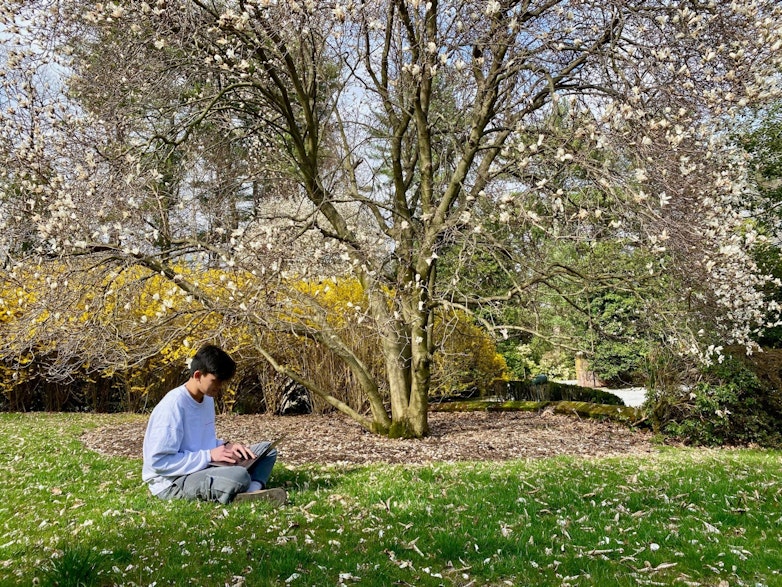
After the College switched to remote operations amid the pandemic, students quickly adapted to tuning in to classes from home.
March 30: Students embark on first-ever virtual term
As students around the world started classes online from their makeshift desks and kitchen counters, The Dartmouth reported students’ first impressions on the awkwardness and complications of online school. New security concerns also arose due to the virtual format.
Amid the credit/no credit grading system, nearly two-thirds of students chose to enroll in four courses, rather than three. And even as students logged in from every timezone, some remained in Hanover, despite town officials’ pleas for students to return home.
The College also reduced financial aid during the spring term, citing lower attendance costs in the absence of students living on campus.
May 9: Morano Gelato shuts its doors as Main Street Hanover fights to survive
As the pandemic stretched onward, local Hanover eateries began to shutter their doors. The first Main Street casualty was staple Morano Gelato, which was soon followed by Salt Hill Pub and The Skinny Pancake’s Hanover location. Baker-Berry Library’s outpost of King Arthur Flour — now King Arthur Baking Company — also closed, though unrelated to pandemic finances. Students mourned the popular campus cafe.
Meanwhile, alumni and students bought Dirt Cowboy coffee online, which helped keep the coffee joint afloat despite decreased in-person sales.
May 16: ISC, sororities confront ambiguous gender inclusivity policies
Following concerns over inconsistencies in the Inter-Sorority Council and Dartmouth sororities’ gender inclusivity policies, the ISC and various sororities examined their bylaw language around the inclusion or exclusion of non-binary individuals. Ultimately, many local sororities amended their constitutions, while national sororities determined that non-binary students would not be permitted to join their houses.
May 26: Student Assembly elections marred by controversies
Anonymous callouts spurred controversy leading up to the Student Assembly election, where Cait McGovern ’21 was named SA president.
The discussion app that some used to anonymously criticize SA candidates — Librex — launched in March and quickly became a breeding ground for contentious comments.
June 1: Students, alumni take up nationwide calls for racial justice
Amid a nationwide reckoning around racial justice following the police killing of George Floyd, students across the country participated in Black Lives Matter rallies and activism. At Dartmouth, Hanover residents held a rally held on Green against police brutality.
Virtually, Instagram accounts surfaced sharing anonymous stories from Black students at Dartmouth and the Geisel School of Medicine. Groups of Black alumni and Black faculty and staff penned letters calling on the College — which has grappled with anti-Black racism throughout its history — to address longstanding structural racism and take further anti-racist measures.

Upper Valley residents gather on the Green on June 1 to protest police brutality in the wake of George Floyd's murder.
June 14: Class of 2020 graduates into uncertain job market
Members of the Class of 2020 celebrated Commencement virtually, sharing their thoughts on their Dartmouth experience and post-graduation future in The Dartmouth’s annual survey.
June 15: Dartmouth elects to remove Baker Tower’s controversial weather vane
Following complaints over its offensive nature, the College removed the Baker Tower weather vane, which bore an image of a Native American wearing feathers, smoking a pipe and sitting on the ground below Dartmouth's founder Eleazar Wheelock. Many community members expressed relief and noted that the removal of the inappropriate symbol was overdue.
June 29: Dartmouth announces plan to reopen campus
As peer institutions weighed their reopening plans, the College announced its plan for the 2020-2021 academic year in early summer.
The plan — which stipulated that more than half of the student body would be invited onto campus each term, providing students between one and three on-campus terms — provoked discontent among many students.
July 7: ICE bars international students from online-only classes
After U.S. Immigration and Customs Enforcement announced that international students taking online-only courses would be unable to remain in the country, Dartmouth joined peer institutions in condemning the rules.
Although the federal government quickly reversed the order, subsequent ICE rules prohibited newly enrolled students taking online-only courses from entering the U.S., requiring international freshmen at the College to take at least one in-person course during the fall should they wish to maintain their visa status.
July 9: Dartmouth cuts five sports teams
Citing both financial woes and a need to increase flexibility in admissions, Dartmouth cut five sports teams — men’s and women’s golf, men’s lightweight rowing and men’s and women’s swimming and diving.
The move was unpopular with student athletes, who campaigned for reinstatement of the eliminated teams. In an interview with The Dartmouth, Dartmouth athletics director Harry Sheehy stated that no amount of advocacy or fundraising could bring the teams back.
July 14: As PBS lawsuit reaches settlement, Dartmouth changes Title IX policy to accommodate new federal government rules
Nearly two years after seven plaintiffs filed a lawsuit alleging that three former professors in the psychological and brain sciences department had engaged in sexual misconduct without action from the College, a federal judge gave final approval to a $14 million settlement.
On the same day, the College’s Title IX office released proposed amendments to its policies in response to new federal requirements.
July 21: Graduate student hunger-strikes for investigation of harassment allegations
Days after laying one high-profile misconduct issue to rest, Dartmouth faced another, as Ph.D. student Maha Hasan Alshawi — who accused computer science professor Alberto Quattrini Li of sexual harassment in early June — began a hunger strike after the College closed her case without what she deemed an adequate investigation. Though Dartmouth agreed to further investigate her allegations if she ended her strike, Alshawi pledged to continue until the investigation had officially begun.
After the College named attorney Maureen Holland as the external investigator for Alshawi’s case, Alshawi announced that she ended her hunger strike on Aug. 7, after nearly four weeks.

Students protest in front of Parkhurst Hall in a "March for Maha" in late July.
Aug. 21: Fall reopening plans hang in the balance as peer institutions reverse course
As a number of Dartmouth’s peer institutions reversed their fall reopening plans, the College delayed its final decision on its plan to welcome students back to campus. Hundreds of Dartmouth faculty signed onto a letter urging Dartmouth to hold a fully remote, non-residential fall term.
Ultimately, the College opted to move forward with its reopening plan, welcoming roughly half of the student body back to campus.
Aug. 25: Upper Valley residents mourn death of famed local bear
After the death of Mink, the female black bear who rose to national fame for her yearly treks back to Hanover, regional experts worked to protect her two surviving cubs. The cubs, Chief and Lori, were both eventually captured and reunited at the Kilham Bear Center in Lyme, New Hampshire.
Sept. 7: Smaller-than-average freshman class arrives at Dartmouth
In lieu of First-Year Trips, which were canceled due to COVID-19, freshmen were welcomed to Dartmouth remotely through the Orientation Peer Leader Program, a combination of Trips and New Student Orientation.
This year’s incoming class was a bit smaller than in recent years, as a record number of ’24s chose to defer their enrollment.
Sept. 14: Students adjust to campus life for first term since pandemic’s onset
With a limited number of students allowed back to campus, many students sought other ways to return to the Upper Valley, living off campus either in Hanover or in surrounding towns.
Regardless of where they chose to live, students had to undergo three rounds of testing and complete a two-week quarantine upon arrival in the Upper Valley. While testing proceeded smoothly, the new systems for both storage and dining posed challenges during the quarantine period.

Dartmouth community members underwent weekly COVID-19 tests throughout the fall.
Sept. 24: Online classes pose challenges, from digital security to isolation
With the third term of learning underway and classes taking place almost exclusively over Zoom, questions persisted regarding the platform’s security. As the passage of a Chinese national security law targeted free speech globally, Dartmouth encouraged faculty members to safeguard students.
Beyond security concerns, students reported difficulties forming connections over Zoom and described the challenges that came with living in isolation housing.
Oct. 12: Rumors arise around student “disappearances” after COVID-19 policy violations
By mid-October, an unknown number of students had been removed from campus for violating COVID-19 gathering restrictions. The College refused to disclose the number of students asked to leave, citing privacy concerns. In the following weeks, the College continued to send students home, including after Hanover Police busted off-campus parties over Halloween weekend.
After the term ended, the College revealed that 86 students were removed from campus during the fall quarter. In a reversal of Dartmouth’s original policy, these students will be able to return for spring, as the removal period for students who violated COVID-19 guidelines was shortened from four terms to two.
Nov. 7: Historic, drawn-out election concludes in Biden victory
After a three-year legal battle, the New Hampshire Supreme Court affirmed students’ right to vote in New Hampshire in early 2020, paving the way for Dartmouth students to cast their votes in the 2020 presidential election in New Hampshire. According to a survey conducted by The Dartmouth, most Dartmouth students chose to vote absentee and overwhelmingly supported Joe Biden.
Although most state and local races had been called by the end of the night on Election Day, resulting in Republicans unexpectedly gaining control of the state government, the presidential election dragged on for nearly four days as a record-high number of absentee ballots continued to be counted in several key states. Students and professors largely celebrated Joe Biden’s victory, generally expressing optimism and calling for action on the part of the new administration.

Community members celebrate on the corner of the Green after Joe Biden and Kamala Harris' presidential victory on Nov. 7.
Dec. 9: Administration reflects on pandemic-era fall, looks ahead to winter
Although the fall COVID-19 regulations kept case numbers low on campus, community members raised questions about their mental health implications. After fielding complaints from students, and particularly parents, about the harsh rules in place, Dartmouth administrators announced that there would be more opportunities for in-person engagement during the winter term — which saw its campus move-in date delayed by two weeks — and more clarity on its enforcement of COVID-19 regulations.
Dec. 17: Police investigate vandalism of menorah on Green
On the final night of Hanukkah, the College condemned anti-Semitism after unidentified perpetrators vandalized the menorah on the Dartmouth Green. The lights on the large menorah were broken in what appeared to be a “bias based incident,” according to Hanover Police, who began an investigation into the crime.
Days later, video footage from the Hanover Inn revealed two possible suspects in the investigation, which remains ongoing.
Dec. 24: College administrators project financial losses
Although Dartmouth’s endowment grew this year, yielding a 7.6% return despite the pandemic, College administrators predict that the College will face a $91 million loss in fiscal year 2021, after a $36 million operating loss in fiscal 2020. The projected loss includes $19 million in additional expenses and $72 million in lost revenue, according to chief financial officer Mike Wagner.

